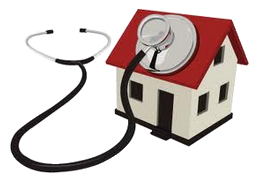Affordable Care Act tests home care for Medicare patients
Health care reform law aims to improve care,
lower costs for seniors and people with disabilities.

The Problem
3-4 million seniors living with multiple chronic illnesses such as diabetes, lung and heart disease are too ill or disabled to easily visit their physician when they need care. Instead, they go to the ER or are hospitalized. These seniors represent about 10% of Medicare beneficiaries but account for two thirds of Medicare’s expenditures, and it’s a problem that’s not going away. The number of people with multiple chronic illnesses will grow to 6-8 million by 2025.
The Solution
House calls, directed at these highest cost patients first, are a solution to the rising Medicare costs. The average $1,500 per ER visit, for example, can more than justify the cost of 10 house calls. Savings are even greater for avoided hospitalizations. Home-based primary care programs have the potential to save 20-40% on Medicare’s most expensive patients by bringing them care in their homes. But this is a new and relatively unproven healthcare delivery model.
Testing the Solution
The Independence at Home Demonstration, authorized by the Affordable Care Act, will test the viability of a new service delivery model that utilizes physician and nurse practitioner directed primary care teams to provide services to certain Medicare beneficiaries in their homes. Up to 10,000 Medicare patients with chronic conditions will now be able to get most of the care they need at home.
“This program gives new life to the old practice of house calls, but with 21st Century technology and a team approach,” said Marilyn Tavenner, Centers for Medicare & Medicaid Services (CMS) Acting Administrator.
The new Independence at Home Demonstration greatly expands the scope of in-home services Medicare beneficiaries can receive. It’s a voluntary program for chronically ill Medicare beneficiaries that will provide them with a complete range of primary care services.
“In my days as a practicing nurse, I saw many patients whose health improved when they were happier with their living conditions,” said Tavenner. “When a critically-ill patient can remain in familiar surroundings, the benefits are many: the person retains greater control over their daily lives, families and caregivers report greater satisfaction with the care, and unnecessary hospitalizations are avoided.”
Home-Based Primary Care
Home-based primary care allows health care providers to spend more time with their patients, perform assessments in a patient’s home, and assume greater accountability for all aspects of the patient’s care. This focus on timely and appropriate care is designed to improve overall quality of care and quality of life for patients served, while lowering health care costs by forestalling the need for care in institutional settings.
Discovering Best Practices
CMS will join with medical practices to test the effectiveness of delivering primary care services at home. The Demonstration will reward healthcare providers that show a reduction in Medicare expenditures through an incentive payment if they are able to provide high-quality care while reducing costs.
Medical practices eligible to participate in the Demo program must include physicians or nurse practitioners who have experience delivering home-based primary care. Up to 50 practices will be selected and each must serve at least 200 Medicare fee-for-service beneficiaries with multiple chronic conditions and functional limitations. Practices in the demonstration will be responsible for coordinating patient care with other health and social service professionals.
The program is one of a series of CMS initiatives to enhance Medicare and offer beneficiaries better care and better health at an affordable cost. It will be supported by the CMS Innovation Center, which was created by the Affordable Care Act to develop and test new models of health care delivery and payment, and disperse best practices throughout the health care system.
Learning More
The Independence at Home website offers additional information regarding the need for home-based primary care, and the progress of the IAH demonstration program.

